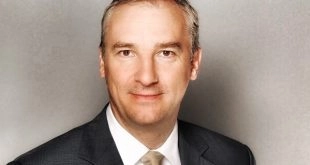In principle, the challenges for delivering an effective omnichannel strategy remain the same across all gambling territories, but in some cases regulations dictate that this is now more about recreating the same user experience than it is syncing up distribution channels.
That was one of the main takeaways from the ‘Creating an omnichannel experience’ panel, sponsored by Italy-based B2B service provider Microgame, which was held on the first day of the SBC Summit Barcelona – Digital.
When asked to define the concept, Microgame CEO Marco Castaldo replied: “Omnichannel is a term I don’t really like that much, I prefer to use multichannel. It’s a little less pompous because I think the intention behind omnichannel is really to think about delivering differentiated experiences by different contexts to the players.
“But I think in reality, what we’re looking at right now is multichannel strategy, so how can you converge different channels thinking about touchpoints, or different consumer occasions, and fundamentally we’re talking about retail and online.”
Thanos Rigas, Sports Team Director at OPAP, agreed: “I’m also friendlier to the term multichannel. We (Marco and I) both face the same regulatory challenges regarding retail and online sports betting.”
Picking up on how Microgame is helping its clients to overcome both “commercial and organisational” barriers, Castaldo continued: “The key is to start simple because you’re really trying to change player behaviour. Your intuition is that consumers will start to behave in certain ways across the channels and you want to try and stimulate that behaviour.
“So starting with something small, practical and manageable is a good way to go – what’s worked for us is, for example, a digitised betting slip so a player can start the process of making a bet online and he/she can complete that process in a shop or vice versa. It’s popular with operators and players, as a way to start to bring the shop experience closer to the online experience.
“What isn’t there yet is using the wallet because clearly there are technical and regulatory limitations there because there is no such thing as a wallet in the shop. But more importantly – given that we have found the technical solutions to make it work – are the commercial and organisational barriers.
“If you’re moving the bets from online to the licensed betting shops (LBOs), you have different economics, different players involved, you might have different partners taking a share (franchisees or affiliates), we have different taxation between the two, so it’s difficult to come up with a strategy which moves players from one to the other – it requires a sophisticated back end and commercial strategies which not everyone is ready to do.”
Arno De Jong, CMO at Nederlandse Loterij, shared his own experience of regulatory barriers impeding progress. “Until a few years ago, we were working on the single account, multichannel across all outlets – a true omnichannel experience,” he said.
“But now it has been decided by the regulator that we have to split our online and offline offering, so we are not allowed to use a single account, we are not allowed to use a single app, or share the sportsbook.
“True omnichannel in terms of distribution crossing land-based and online has become pretty difficult in Holland, unfortunately, but it doesn’t mean that it’s no longer important. We are still trying to deliver an omnichannel experience strategy, but we can’t have an integrated omnichannel distribution strategy.
“We are using online presence to promote our offline sportsbook and vice versa. But in terms of distribution it has become very difficult in terms of regulations. And I think that’s something you see more and more in several European territories.”
By contrast, Nicklas Zajdel, Group COO at Fortuna, was more positive over the pursuit of a ‘true omnichannel’ betting experience across channels. He said: “We see a very good response from the fact that we have a shared wallet, so our online customers can use our shops to deposit and withdraw.
“We also allow customers to register and sign-up through our shops to our digital products, so having that technical infrastructure is obviously the key and the foundation to build upon. And then we’ve got the customer facing application of promotions and driving the experience as consistently as we can.
“What’s so exciting at Fortuna is we don’t have the barrier internally so we don’t have the conflict of retail vs online P&L – we’re omnichannel by design. From a customer perspective, it’s very popular that you can transact with the brand as it’s convenient to you, at the time and location. You can build your bet on your phone, place it in the shop then continue to track the bet from your mobile device, on the go.”
All this led session moderator Nikos Konstakis, VP of Sportsbook Product at SG Digital to draw the following – and sensible – conclusion. “It sounds like the principles around the challenges are the same, but the actual challenges are specific to geographies.”
SBC Summit Barcelona – Digital is a FREE to attend virtual conference and exhibition running from 8-11 September. To register for your free ticket or find out more please visit – https://sbcevents.com/sbc-summit-barcelona-digital/









